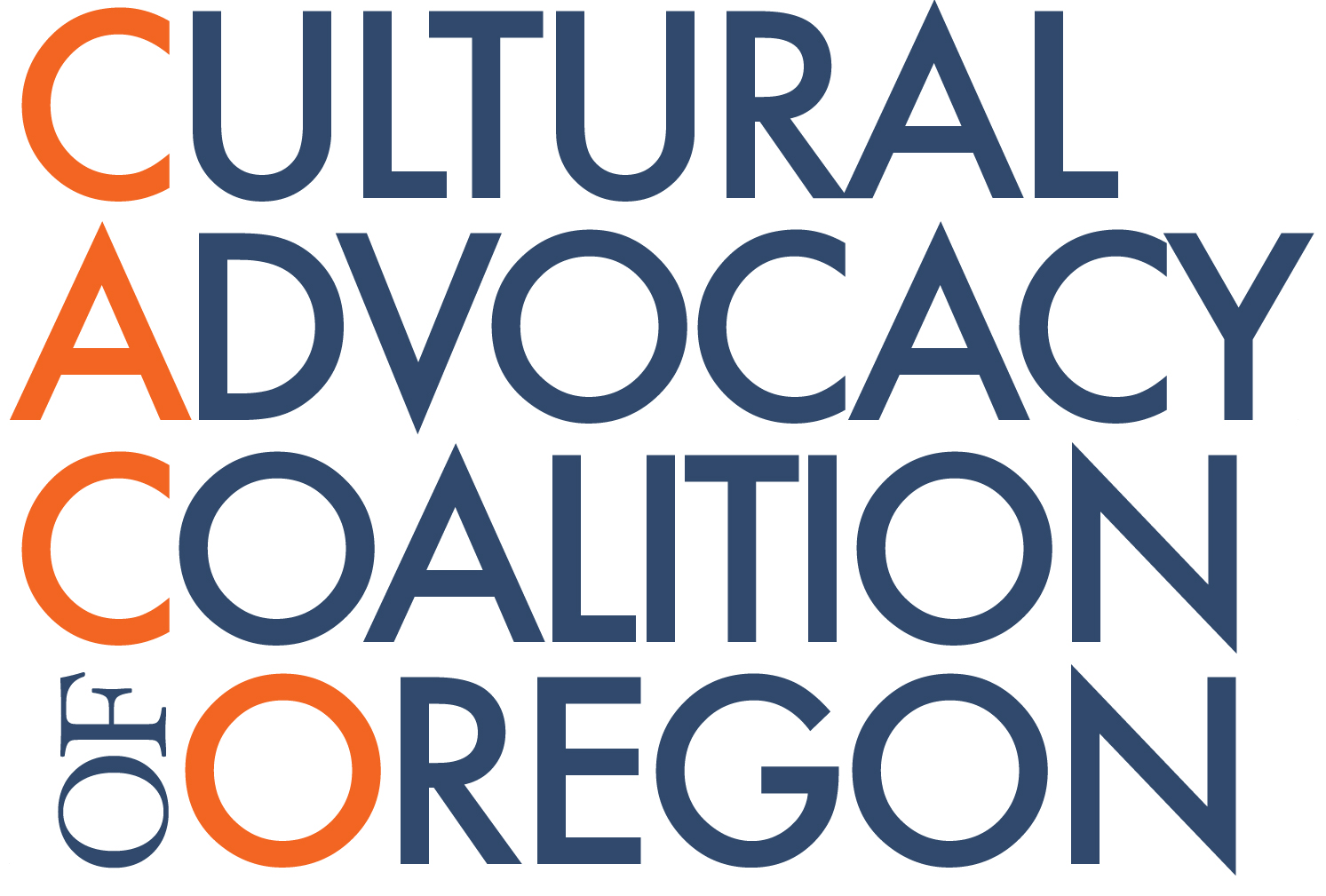The interim (when legislators are not in session in Salem) is the MOST productive time for grassroots advocacy. Legislators are back in district, with their eyes and ears tuned to constituents and local concerns. Use this time to reach out to legislators and develop relationships, with these suggested activities, intended to help you connect and communicate with your elected officials.
WHAT TO SAY
If you have a few minutes in a social setting with a candidate or legislator, keep it simple:
“Arts and culture are important to me. Cultural organizations leverage state funding to support arts education in our schools, produce innovative work, preserve our history and strengthen the fabric of our community. This work is essential to Oregon and it needs your support to continue.”
Even better… ask them about their arts and culture experiences. Let them share their connections and then tie your request to a specific organization, a specific experience or program and ask for your legislator’s help:
“Arts and culture are important to me, too. State funding helps {cultural organization} to {two-sentence program or impact story here}. {community} needs your leadership to strengthen this resource in our community.”
WHAT TO DO
If you are an individual arts and culture advocate (even if you lead or work at a nonprofit), you can (and should):
- Find your legislators’ contact information here.
- Sign up for their newsletters and attend town halls and events that include an opportunity for public comment.
- Introduce yourself. Identify your support for arts and culture and offer to meet with them.
- Like and follow your legislators on social media; post and tag legislators and candidates who you have met with and let others know they support the arts.
- Offer your personal endorsement of pro-arts and culture candidates for public office (Look for the coalition’s candidate endorsement list–to be released after Labor Day!)
- Donate to candidates who support arts, heritage and the humanities.
- Join or renew your membership in the Cultural Advocacy Coalition!
As a 501(c)3 nonprofit, your organization can (and should):
- Participate in and arrange meetings with legislators to learn their views on issues.
- Invite legislators to your events. If they are able to attend, schedule time before or after to take a tour, or meet with you and your organization’s leadership.
- Add your legislators to YOUR email and mailing lists.
- When your organization receives a state funded grant write a thank you note to your legislators. Issue a local press release and facilitate a quote supporting the work of the organization to be included in the release from your legislator(s).
- Invite your legislators to openings or community events and ask them offer opening/closing comments about the importance of the arts to your community.
- Use your calendar to schedule a “touch a month” from TODAY through the November elections. This allows you to get to know your legislator personally and it allows them get to know you—and your organization.
- Join or renew your membership in the Cultural Advocacy Coalition!
Remember, non-profit organizations have the right and the responsibility to participate in the legislative process (subject to legal regulations).
However, 501c(3) nonprofit organizations may not (under any circumstances):
- Endorse or oppose candidates for public office.
- Collect or distribute funds for political campaigns.
- Donate your facilities for political fundraising.
- Engage in legislative activities past a “certain limit” (the IRS has a lobbying limit for organizations; call your tax accountant for more information).
